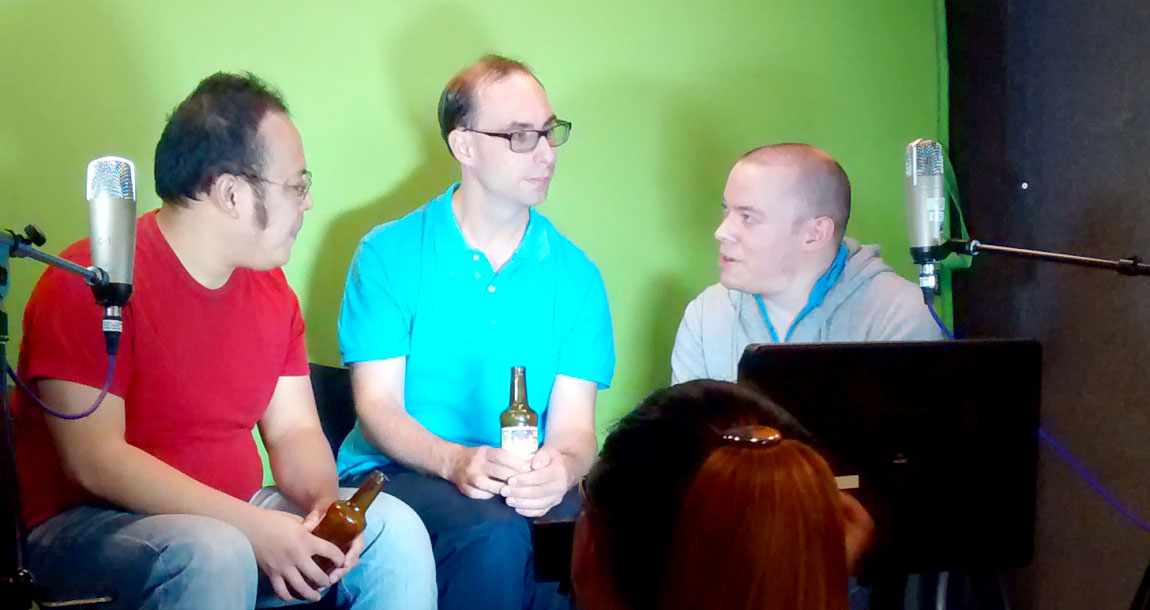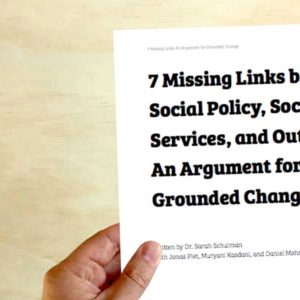
Core components
- A brand: Real Talk is straight-up, a bit cheeky, and peer-to-peer; it’s meant to feel the opposite of expert-driven health education.
- A new product: Real Talk takes real-life questions about sex and dating from adults living with cognitive disability and makes frank, funny videos where folks talk about the answers.
- New roles: Facilitators are staff trained to host watching parties and facilitate blunt conversations about sex and relationships.
- New interactions: Videos are screened at pizza parties in the community. They are a new kind of social event. Watch the videos here
Real Talk has moved from a first-generation prototype to proof of concept, and is now operating across the Lower Mainland, thanks to Public Health Canada funding.
Pain points
Real Talk grew out of three months of ethnographic research into sex, love, dating and relationships as experienced by adults living with a developmental disability.
There were four major pain points: (1) Staff don’t know their employers’ expectations when it comes to supporting sexualities; (2) Accurate information is withheld or only presented in a risk & safety context; (3) There are systemic barriers to relationships; and (4) People with developmental disabilities are particularly left out of conversations.
These were people like Pat, who was very interested in sex but afraid to ask questions. He had been fed lots of misinformation to keep him in the dark, such as “masturbation makes your brain shrink.”
Research & impact
Real Talk builds on the limited literature base on sexuality amongst adults with cognitive disabilities. People with developmental disabilities are at greater risk for contracting HIV and STIs than the general population. One reason is that they are underserved when it comes to sexual health education. They are often excluded from sexual health education in primary and secondary schools.
Real Talk uses modeling & rehearsal, and contribution & reciprocity as its core change mechanisms. Content is generated by users, and conversations about sexuality are modeled in Pizza Parties.
Core change mechanisms in Real Talk are:
Model and rehearse
People learn by watching peers and trying for themselves. Good interventions are peer-to-peer and experiential, not expert-led and informational. To learn more about this, and other behaviour change mechanisms, read our Grounded Change paper.
Enable reciprocity
People want to contribute. Good interventions are two-way exchanges, not one-way transactions. People move from a ‘client’ role to a ‘co-producer’ role.
Real Talk was developed over a 6-month period. This resulted in:
- 11 video episodes produced
- 5 viewing parties with 40+ participants
- Outcomes include more comfort and less shame talking about sex; greater self-understanding; and a growing network of people that are ‘safe’ to bring questions to.
- Theory of change developed
Team & partners
Real Talk (formerly known as Ask A Dude) is one solution that came from The Fifth Space, powered by Burnaby Association for Community Inclusion, posAbilities, and Kinsight. Implementation and scale is supported by Public Health Canada.
Real Talk was lovingly created by John Woods, Bobae Kim, Hayley Gray, and Irena Flego – with support from Charlotte Secheresse.



